For the last few days, you’ve felt a little more run-down than usual. Your sleep schedule has been off, you’ve been ‘on edge’ lately, and you’re starting to experience a little more aches and pains throughout the day.
You think, “This is nothing an extra strength Tylenol can’t fix, right?”
So you take a quick trip to your local pharmacy, and just as you're about to checkout, you think, “ Wait… I need something to help me sleep.”
So you begin your search for the most effective sleep aids. After spending what feels like hours reading the labels of bottle after bottle, package after package, you think, “I wish there was a natural medicine that could help relieve my pain, restore my sleep, and improve my mood.”
This exact story is something we’ve heard time and time again. But what if we told you there was a medicinal supplement that could help improve your mood, restore your sleep, relieve your pain, and more?
Say hello to Cannabidiol (CBD).
Now we know what you might be thinking… “CBD sounds amazing, but I hear it comes from cannabis and contains THC.”
We get it… Not everyone enjoys the feeling of being high for the sake of pain relief and an improved mood. Besides, what happens when the high wears off?
But here’s a fact you may not know: The amount of THC found in hemp-derived CBD is so small that it’s not enough to cause even the slightest buzz… In fact, studies show that CBD is more effective with a little bit of THC mixed in.
You see, there’s a lot of misinformation floating around the web regarding CBD, and we think it’s time you heard the truth.
So without further ado, let’s clear the air on the combination of CBD and THC.
First let’s discuss: What is THC?
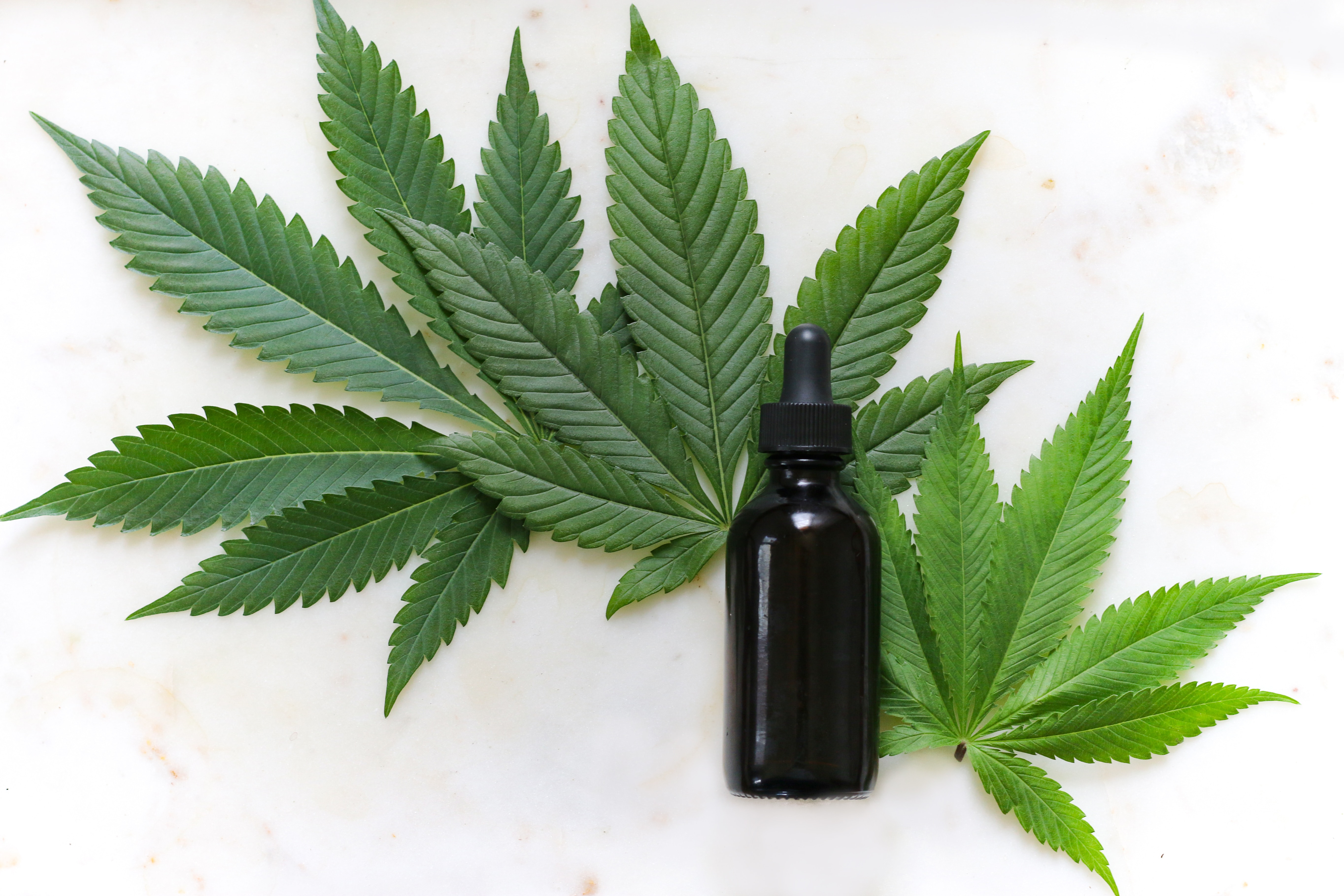
THC is short for Tetrahydrocannabinol. This is the first and most common cannabinoid found in the cannabis plant. If the word “cannabis” is setting off alarm bells in your head, take a deep breath and keep reading…
Cannabis is a complex plant. That’s because it’s actually a family of two putative species: Cannabis sativa and Cannabis indica. And as luck would have it, hemp and marijuana belong to the Cannabis sativa species. However, these two plants couldn’t be more different.
While it’s true that THC is found in both hemp and marijuana, only trace amounts of it are found in the hemp plant (0.3% to be exact). Whereas in marijuana, it exceeds 0.3% quite a bit.
Benefit of THC: Medical Marijauana
What a lot of people don’t know is that while THC is the psychoactive cannabinoid responsible for getting its users “high”, it also offers an array of therapeutic benefits:
- Helps relieves chronic pain from endometriosis, interstitial cystitis, fibromyalgia, HIV, Irritable Bowel Syndrome (IBS), and Crohn’s disease
- Helps target nerve pain associated with Multiple Sclerosis
- Could reduce Glaucoma
- Helps lessen the tremors associated with Parkinson’s disease
- Reduces nausea
- Helps ease PTSD
- And much more
Despite the fact that THC received a bad rap since the prohibition era in the early 1930s, it’s safe to say that the stigma surrounding this “evil weed” is slowly crumbling. Now more than ever, people are exploring the benefits of THC, and their health conditions are improving as a result.
But not everyone enjoys the feeling of being high. This is where CBD comes in…
What is CBD?
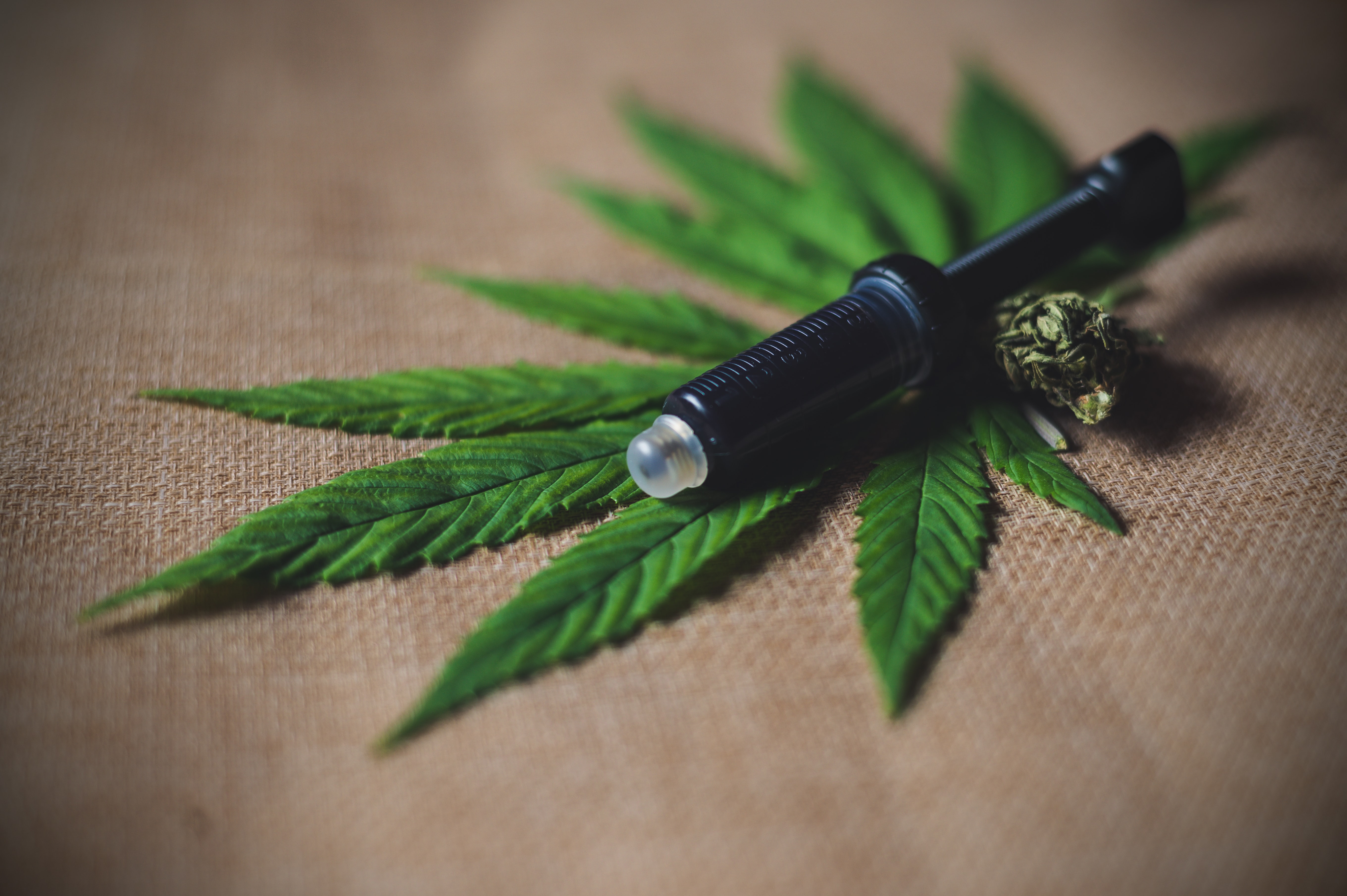
CBD is short for Cannabidiol, the second most common cannabinoid found in the cannabis plant.
While it’s true that CBD is found in both hemp and marijuana, it occurs most prominently in the hemp plant. That’s because hemp is NOT marijuana.
Hemp is a pretty universal plant. Paper products, clothing, houses, and medicines come from this industrial plant. Pretty cool right? But it’s the nutrients and compounds of this plant that have medical professionals, scientists, and even veterinarians scratching their heads wondering, “Why haven’t we been using this medicinal herb more often?”
We’re wondering the same thing!
As we mentioned earlier, only a tiny amount of THC is found in hemp, so it’s not enough to cause a high. In fact, because the ratio of CBD is so much greater than THC, studies show that CBD actually prevents the unwanted psychoactive effects of THC. This offers even more assurance that users of hemp-derived CBD won’t get high.
It’s kind of like regular and decaf coffee. Both contain coffee but a cup of decaf coffee in the late afternoon won’t keep you up all night, like it would if you were to drink a caffeinated cup of coffee.
Likewise, CBD won’t get you high like THC would. So you can rest assured that hemp-derived CBD won’t give you any psychoactive effects, despite what others might think.
Benefits of CBD: Hemp
The thing about CBD is that, like THC, it offers its users tremendous therapeutic value… without the high.
These benefits include:
- Helps reduce the frequency of seizures from epilepsy
- Reduces chronic inflammation
- Helps relieve anxiety
- Can help in alleviating stress
- Helps reduce chronic pain
- Reduces the overproduction of Sebum, which is known to promote acne
- Helps relieves digestive problems
- And much more
In addition to all these amazing therapeutic properties, CBD is also known to be a pretty powerful antioxidant. So it’s known to promote cellular health as well.
Now you might be wondering, “This is all great information, but how is CBD better with THC?”
How do CBD and THC work together?
When it comes to CBD and THC, we believe nature knows best, and according to scientific research it’s clear that using the whole hemp plant is far more superior than isolating individual compounds from the plant. This is because the compounds found in hemp contribute to the therapeutic effects of CBD.
These compounds include:
- Cannabinoids: CBD, 0.3% THC, CBG, CBN
- Terpenes
- Flavonoids
- Vitamines
- Amino acids
- Omega 3 fatty acids
- And other phytonutrients
All of these help create the “Entourage Effect” in the body. This simply means each of these compounds enhance each other’s beneficial properties.
As a matter of fact, one study found that when CBD was combined with a little THC, it helped enhance its anti-tumor effects. Other studies show that full spectrum CBD (which contains a small amount of THC) was far more effective than isolated CBD.
Both THC and CBD are powerful anti-inflammatories. And if there’s one thing for certain, inflammation is one of the main contributors to diseases and health problems.
So yes, CBD is indeed much better and more effective with a little bit of THC. Now, the question remains: Is CBD still therapeutic in the absence of any THC?
Is CBD beneficial without THC?
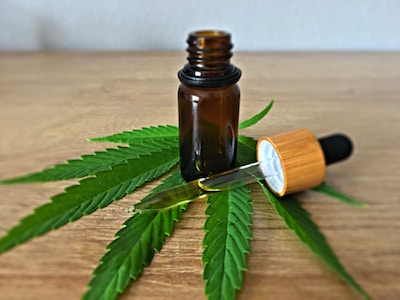
Many people are unable to consume any amount of THC, despite where they stand with the controversial cannabinoid. This is partly because of drug testing. While it’s true that drug testing officials are not actively looking for CBD, they are looking for other substances including THC.
Because full spectrum CBD contains trace amounts of THC, it could cause a failed drug test. For this reason, many consumers turn to broad spectrum CBD and of course CBD isolate (both of which contain absolutely no THC).
Still, it’s important to know that not all CBD is created equally. So even broad spectrum CBD, which contains all the compounds of the hemp plant minus any trace amounts of THC, could potentially cause a failed drug test. This is because some companies may not accurately remove all the THC from the final product. Third party testing usually helps ensure that the product is not only formulated as it should be, but is accurately labeled as well.
CBD isolate, which contains nothing but CBD, is free from all THC, thus making it a much better option for those who can’t consume THC.
While it’s true that CBD isolate is not nearly as effective as full spectrum CBD or even broad spectrum CBD, it does offer an array of therapeutic benefits. In fact, some people are more sensitive to the terpenes found in cannabis. So they benefit from CBD isolate far better than they would from full or broad spectrum CBD. Still, the theory of the entourage effect won’t be achieved by isolating an individual compound like CBD. But every person is different, so what works for one may not work for another.
This leaves the question: Is it legal for CBD to contain THC?
Is CBD oil legal if it contains THC?
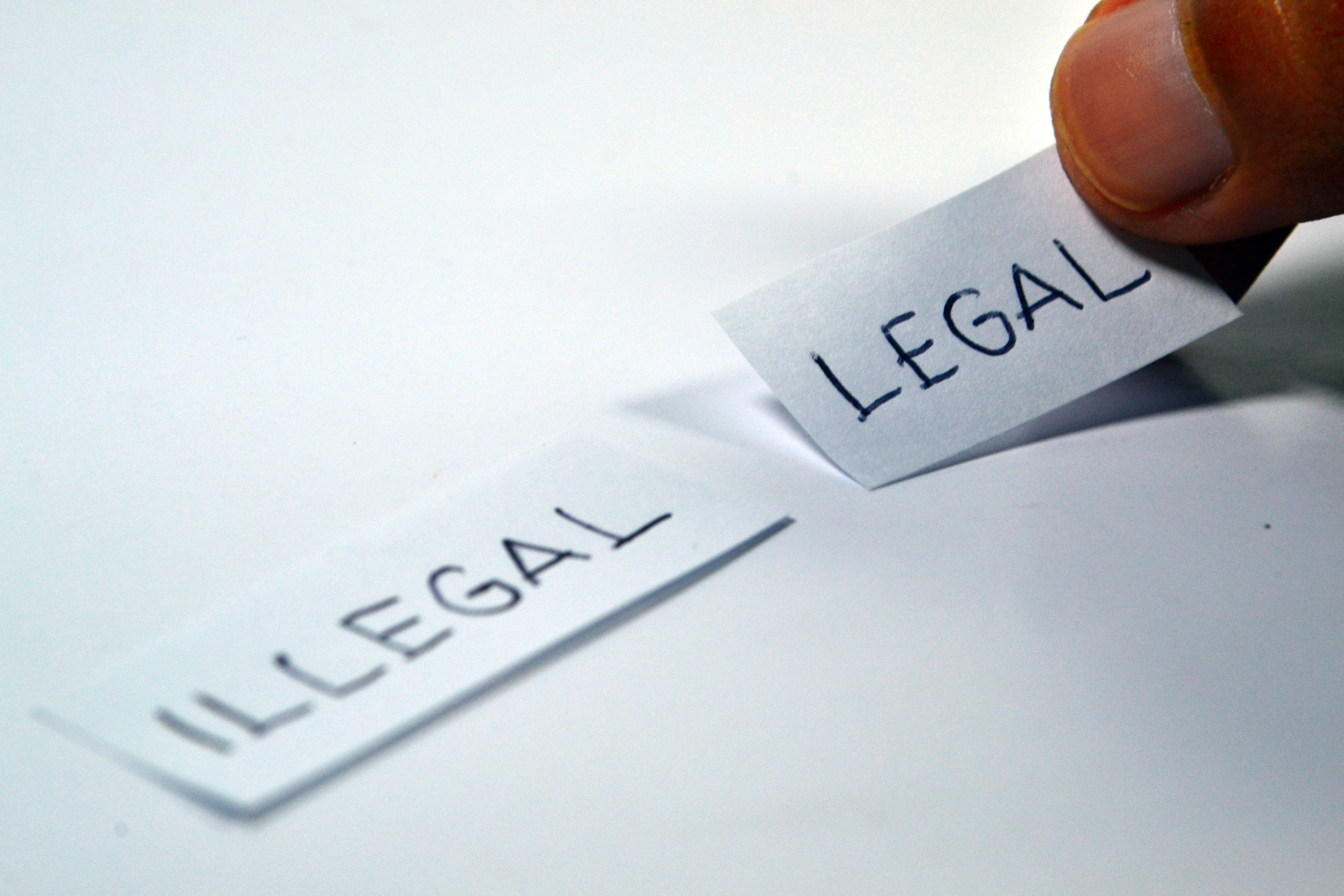
While marijuana is legal in some American states, it’s still illegal on a federal level. This includes marijuana-derived CBD, partly because marijuana exceeds the legal amount of THC.
Hemp-derived CBD oil, on the other hand, is in fact legal on a federal level but illegal in some American states. We know, confusing right? While hemp only contains 0.3% THC, which isn’t enough to be intoxicating, some state laws aren’t on board with anything regarding cannabis.
If you live in a state that happens to find hemp-derived CBD illegal, don’t fret. As much as we believe full spectrum CBD is the most effective form of CBD, isolated CBD may be the best option for your situation. However, even CBD isolate is still frowned upon by some state laws.
We would never encourage anyone to break their state laws, but if you find that hemp-derived CBD is the only thing capable of treating your health conditions, then it might be in your best interest to reach out to your local state officials and inform them of your current health situation. Having a doctor's note can further your case as well.
Nevertheless, it’s important for you to research your state laws before purchasing any form of hemp-derived CBD products. If you do live in a state that welcomes all things hemp, then finding a high quality CBD product is key.
What are the best CBD products that contain a little THC?
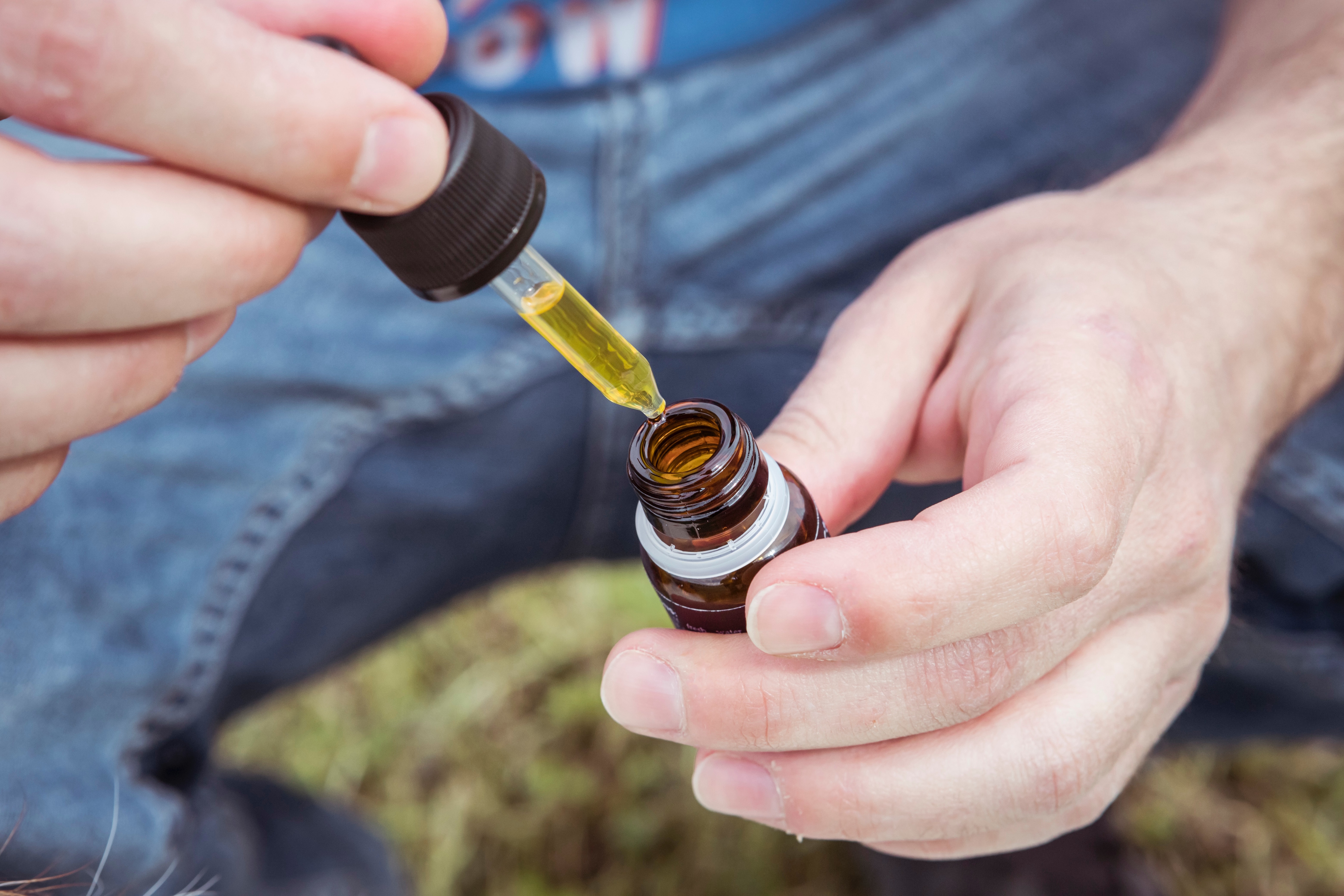
Shopping for hemp-derived CBD for the first time can feel overwhelming. Let us explain…
Everyone and their mother wants to benefit from the CBD craze, and this includes those who want to turn a financial profit. The issue here is that it costs a lot of money to run a CBD business. Cultivating CBD from organic, sustainable hemp farmers in America is not cheap. Not to mention, third party testing is a must in the CBD industry (though not legally mandatory), but it’s perhaps the most expensive part about selling CBD.
Because third party testing is not legally mandated in the CBD industry, it’s much easier for corked, non-reputable CBD companies to cut corners and sell falsely labeled CBD products. These products are harmful and could produce horrible, life-threatening side effects.
This is why it’s so crucial to buy hemp-derived CBD products from reputable companies. These companies take the time to thoroughly test their products before they hit the market. They also steer clear from making false medical claims about their products, like “Our CBD products will cure cancer,” even though we know that some studies show CBD can improve cellular health.
Buying hemp-derived CBD oils and other CBD products is much easier online. This is because most of the answers to your questions can be found on the reputable CBD company’s website.
Look to see if the company has their products tested by independent third parties, then explore their Certificate of Analysis (COA), and check to make sure that their labels indicate that their CBD oils and other products contain no more than 0.3% THC.
Most CBD companies will offer an array of CBD products:
- High quality CBD gummies
- High quality CBD oils and tinctures
- High quality CBD lotions and creams
- High quality CBD chocolates
- High quality CBD beauty products
- And the list goes on
Bottom line
We understand that THC is a controversial subject. But when you look at the studies and hear the testimonials, you’ll see that CBD with a little bit of THC is relatively safe and harmless. Not to mention, it’s far more effective than many over-the-counter and prescription medications.
If you’re still on the fence about trying CBD products that contain a little THC, there are some alternative hemp-derived CBD products out there. If anything, we encourage you to continue to research THC and CBD, and when you’re ready try it for yourself, only you can determine if it will work for you or not.


